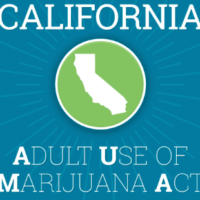An electoral showdown is looming in California this November over Proposition 36, which would end prison sentences for non-violent drug users (www.drugreform.org).
Modeled on Arizona’s successful Proposition 200, Prop. 36 would allow most offenders charged with simple possession of drugs to opt for a diversion program instead of imprisonment. Criminal charges would be dismissed upon successful completion of the program.
Prop. 36 is tightly written to exclude dangerous and violent criminals. It applies only to first and second time drug possession offenders who are not charged with other crimes simultaneously and have not had a serious or violent “strike” in the past five years.
While early polls show strong support for the initiative, a vigorous opposition campaign is expected from law enforcement groups with an interest in the status quo.
Proponents argue that Prop. 36 will save taxpayers money by taking non-violent drug offenders out of jail and placing them in diversion programs that are more cost-effective and humane. California has the highest proportion of drug prisoners in the nation, according to a recent study by the Sentencing Project. As of December 31, 1999, the state prison system held a record 45,000 drug offenders, 20,000 of whom were convicted for simple possession of drugs. Thousands of others are in county jails.
According to the official ballot analysis by the Legislative Analyst, Prop. 36 would save the state between $100 million and $150 million annually for lower costs for prison operations plus a one-time saving of between $475 million and $575 million for prison construction. Counties would probably save another $50 million annually in jail costs.
The Prop. 36 campaign is led by the Campaign for New Drug Policies in Santa Monica, an offshoot of Americans for Medical Rights, which led the Prop. 215 campaign. The campaign has financial support from philanthropists George Soros, John Sperling and Peter Lewis.
Prop. 36 is backed by the California Nurses Association, the California Society for Addiction Medicine, the California Labor Council, and the SF Medical Society, as well as by California NORML and other drug reform groups. Prop. 36 is also endorsed by the city councils of Oakland, Berkeley and San Francisco, State Senators John Burton, Tom Hayden, Hilda Solis, Richard Polanco, Don Perata and John Vasconcellos, and U.S. Senate candidate Rep. Tom Campbell.
The opposition to Prop. 36 is led by Californians United Against Drug Abuse, backed by a phalanx of law enforcement groups including the California Narcotics Officers Association, the California District Attorneys, the State Sheriffs’ and Police Chiefs’ associations, and the powerful prison guards’ union.
Unlike Prop. 215, which had no significant financial opposition, Prop. 36 has already attracted a $100,000 donation against it from Alex Spanos, owner of the San Diego Chargers. Hollywood actor Martin Sheen, whose son Charlie nearly died of a drug overdose, has agreed to be a spokesman for CUADA.
On its website (www.noonprop36.com), CUADA charges that Prop. 36 is a “dangerous and misleading” initiative that would compromise public safety and send a bad message to kids. In specific, it has claimed that the initiative would open the doors to rapists, child molesters and users of date rape drugs.
CNDP spokesman Dave Fratello dismisses such claims as “whoppers.” He notes that Prop. 36 applies only to drug possession for personal use, and that anyone simultaneously charged with rape or sexual assault, or convicted of such an offense in the past five years, would be explicitly disqualified.
Prop. 36 would have only a modest effect on marijuana users , since they are mostly protected from prison by California’s 25-year-old decrim law. Possession of less than one ounce would still be punishable by a $100 ticket (though offenders could ask for diversion instead). However, Prop. 36 would end imprisonment for possession of hashish or more than one ounce of marijuana. About 1,400 Californians were sentenced to jail or prison for marijuana or hashish possession in 1998. Prop. 36 would not apply to personal use cultivation of marijuana.


